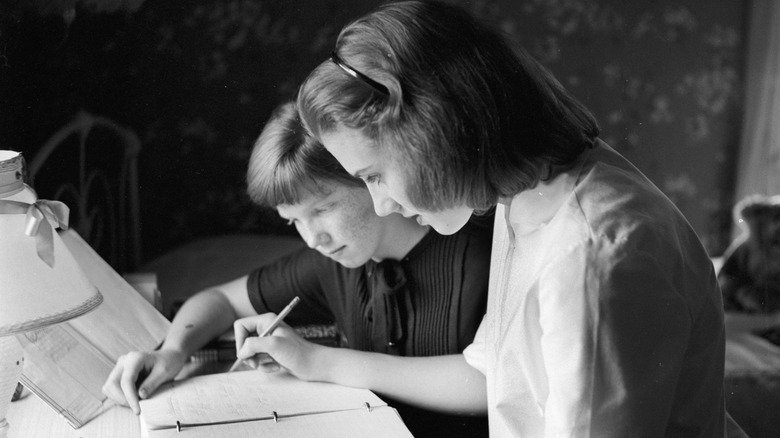How Homework Became A Thing In The US
For many U.S. students, homework is an unfortunate certainty — the childhood equivalent of death and taxes. But the truth is that it has been controversial since it was introduced. A major player in the initial spread of homework in the U.S. was 19th-century education reformer Horace Mann, Study explained. Mann was inspired by the developing public education system in Germany, which had recently become unified as a single nation-state. The Volksschulen, or "People's Schools," assigned students work to be completed at home. Mann, who helped develop a state-funded public school system in the U.S., adopted the homework concept from the German system.
As school attendance became mandatory in the late 19th and early 20th centuries, homework became a reality for more U.S. families, Slate explained. This led to a rising backlash against it. In 1900, Edward Bok wrote in the Ladies' Home Journal that forcing children to complete homework rather than play was a "rank injustice." His editorial received support from parents and teachers and, by 1901, 2/3 of U.S. city school districts had limited homework. California went so far as to ban homework for any child under 15. In the 1930s, the American Child Health Association listed homework with child labor as a cause of tuberculosis and heart disease in children, according to The Washington Post.
The rise of homework
Attitudes toward homework shifted in a big way during the Cold War, according to History. The Russian launch of Sputnik in 1957 led to concerns that U.S. students were falling behind their Russian counterparts, and homework became an important part of revamping the high school curriculum. In 1948, only 8% of U.S. students studied for two or more hours a night. By 1962, 23% of high-school juniors studied that long.
Since then, feelings about homework have gone in roughly 15-year cycles, Slate explained. There was another backlash during the counter-cultural 1960s and 1970s, followed by another pro-homework push in the 1980s. The 1983 government report "A Nation at Risk" argued that high schoolers should be doing more homework to compete with students in South Korea, Japan, and Germany. The 1990s saw another period of anti-homework sentiment, with articles like "The Homework Ate My Family" appearing in Time. Today, homework is being assigned to children as young as kindergarten. Yet other schools are experimenting with homework bans, according to The Washington Post. The future of homework in the U.S. is as controversial as its past.

